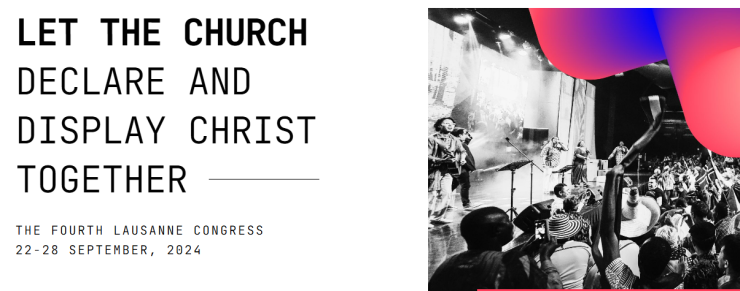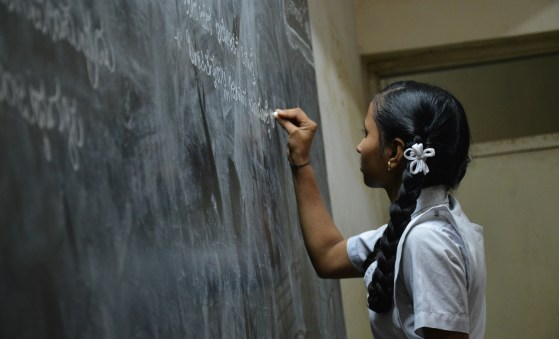
The Fourth Lausanne Congress on World Evangelization officially opened on September 22, marking a historic gathering of over 5,000 Christian leaders from across the globe. Held in the city of Incheon, the event is being hailed as the largest and most diverse gathering in the history of evangelicalism.
The opening celebration featured a time of worship led by renowned musicians Keith and Kristyn Getty, as well as reflections on the Congress's vision from the Global Executive Director of the Lausanne Movement, Dr. Michael Oh. "This historic city was the entry point of early Protestant missionaries who brought the good news of the Gospel to this country. And now, here we are," remarked Rev. Jaehoon Lee, Senior Pastor of Onnuri Community Church and Co-chair of the Fourth Lausanne Congress Organising Committee.
According to the organisers, the preparatory work for this event has been extensive, with a committee of 1,400 people divided into 47 teams handling various aspects such as transport, communication, catering, and security. The seamless registration process on the opening day was made possible by the 400 dedicated volunteers.
Speaking to Christian Today from Incheon, Rev. Vijayesh Lal, the General Secretary of the Evangelical Fellowship of India said, "The Fourth Lausanne Congress in Incheon is truly a remarkable gathering that holds great significance for the global evangelical community. I am deeply encouraged by the intentional focus on unity, collaboration, and a renewed commitment to the Great Commission."
In his opening address, Dr. Oh acknowledged the progress made in global evangelism over the past decades, while also recognising the Church's continued failures. He expressed the need for humility, stating that 50 years after the first Lausanne Congress, the Church still has a "flawed witness in the world and a flawed mission to the world." The Lausanne Movement's leader lamented the "deceleration" in the trajectory of sharing the Gospel, despite the growth of the Church in Africa, Asia, and Latin America. He also highlighted the tarnished reputation of the Church due to "scandals of pride, power, and impurity" that have "robbed the Church and compromised our witness." Echoing the call for repentance made at the first Lausanne Congress, Dr. Oh said that 50 years later, there is still a need for repentance for the Church's failures.
However, Dr. Oh also struck an optimistic note, emphasising the importance of unity and collaboration within the global Church. He challenged the participants, stating that the Church has become "self-focused, self-confident, self-sustained and perhaps flat out selfish," losing sight of the need to work together. Dr. Oh called for the 99% of the Church not directly involved in ministry to be engaged as witnesses in the "marketplace," stating that the Church cannot fulfil the Great Commission if only 1% are involved in ministry.
The opening day also saw the launch of the Seoul Statement, a new document that builds on the previous Lausanne Covenant, Manila Manifesto, and Cape Town Commitment. Developed by the Theology Commission, the Statement addresses seven key themes, including the Bible, the Church, Reconciliation, and the Human Being. Participants will be invited to interact with the content of the Declaration during the Congress, with the hope that it will spark relevant conversations that will have an impact on the global Church.
As the Congress progresses over the next week, participants will also engage in discussions and workshops focused on 25 "key gaps" identified in the pre-Congress report, aimed at equipping the global Church to more effectively carry out the Great Commission.
"This is my first time at a Lausanne Congress, and I am overwhelmed by the experience," said Joseph Shrisunder, a pastor and church planter from India. "Seeing more than 200 nations gathered under one roof to celebrate the work of Christ is truly inspiring. It's a great learning opportunity from top-level leadership, and I've made many friends who are now prayer partners from around the world. This global connection is invaluable for my church back home."
The importance of the event was also reflected in the greetings made by the authorities present, including the mayor of Incheon, Yoo Jeong-bok, who highlighted the city's history as "the port through which Christianity entered our nation in the 19th century." The impact of Christianity on the development of South Korea's culture, education, and values was also present during several moments of the lecture given by Dr. Oh.
The Fourth Lausanne Congress has set the stage for what promises to be a transformative gathering, as the global Church comes together to celebrate its progress, acknowledge its shortcomings, and renew its commitment to unity and collaboration in fulfilling the Great Commission.




